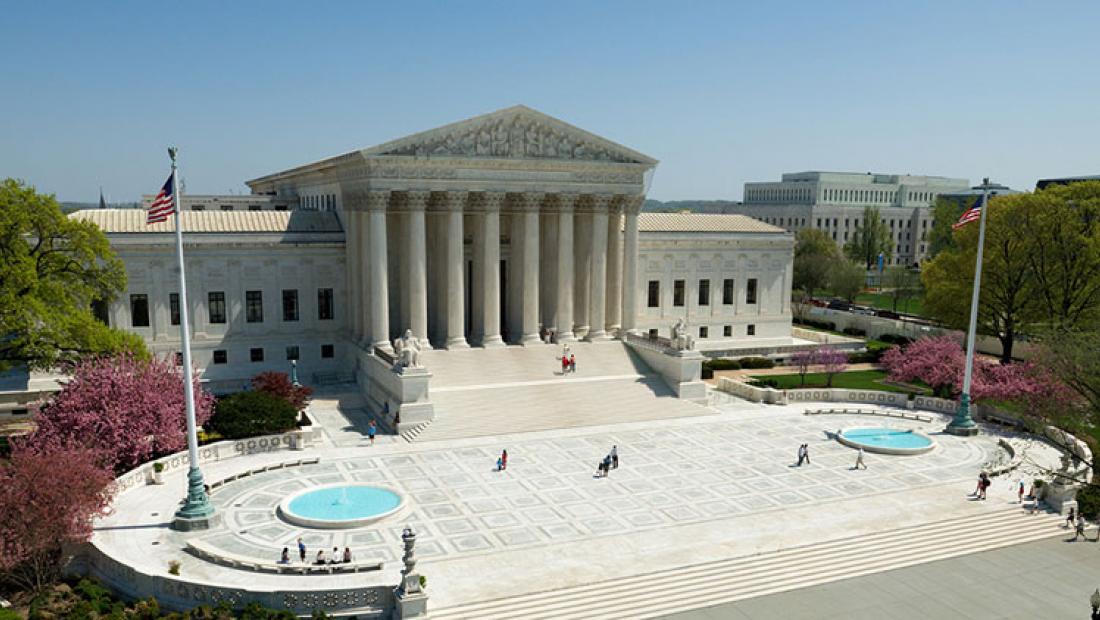Supremes: Infringement Suits Must Await Copyright Registration

The smarter way to stay on top of broadcasting and cable industry. Sign up below
You are now subscribed
Your newsletter sign-up was successful
The Supreme Court has ruled unanimously that with a few exceptions, a party can't sue for copyright infringement until the copyright has been registered, not starting when the proper paperwork for registration has been filed.
An author gets exclusive rights to their work as soon as it is published, but does not have standing to sue for infringement until the Copyright Office has acted on registration, the court concluded, affirming a ruling the U.S. Court of Appeals for the Eleventh Circuit.
There are a couple of exceptions, both implicating broadcast and cable. A suit can be filed before registration for a live broadcast or for a work vulnerable to pre-distribution infringement, like a movie or TV show pirated before release/airing or in advance of various distribution windows.
But this case involved online news content that the Wall Street Journal left on its site after cancelling a licensing agreement with the third party that supplied it, the Fourth Estate Public Benefit Corp.
The Fourth Estate sued, but before it had gotten word back from the Copyright Office on its registration of that material. Fourth Estate cited the fact that such registration decisions, which used to be made in a couple of weeks, now take many months, so left a window where content creators could not sue, which could theoretically reach beyond the three-year statute of limitations for filing a copyright infringement suit.
Writing for the court, Justice Ruth Bader Ginsburg wrote that that theoretical harm was a stretch. "The average processing time for registration applications is currently seven months, leaving ample time to sue after the Register’s decision, even for infringement that began before submission of an application," she wrote.
As for the general issue of registration processing delays affecting the timing of suits, she said: "Delays in Copyright Office processing of applications, it appears, are attributable, in large measure, to staffing and budgetary shortages that Congress can alleviate, but courts cannot cure."
The smarter way to stay on top of broadcasting and cable industry. Sign up below
She said that as unfortunate as that lag might be, it did not allow the court to revise congressionally composed text the court concluded prevented suits until copyright registration decisions were made.
“Contrary to the petitioner’s narrow focus on litigating convenience, today’s unanimous decision confirms that the Copyright Act advances broad federal-policy concerns that go well beyond the mere convenience of plaintiffs bringing infringement suits," said Cory Andrews, senior litigant counsel with the Washington Legal Foundation, which had argued in an amicus brief that Congress was advancing a particular policy goal by conditioning suits the Copyright Register's review, i.e. "to maintain a public registry of copyright ownership, to conserve judicial resources, and to enlarge the Library of Congress’s collection of copyrighted works."
Contributing editor John Eggerton has been an editor and/or writer on media regulation, legislation and policy for over four decades, including covering the FCC, FTC, Congress, the major media trade associations, and the federal courts. In addition to Multichannel News and Broadcasting + Cable, his work has appeared in Radio World, TV Technology, TV Fax, This Week in Consumer Electronics, Variety and the Encyclopedia Britannica.

